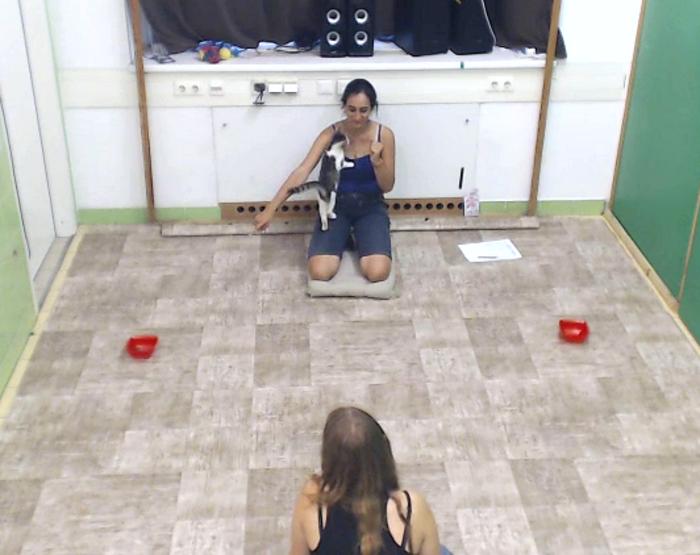Dog and cat owners are familiar with the age-old debate: which of the two species is smarter? However, answering this question is impossible, especially due to the difficulty of a sound comparison.

Credit: Photo: Department of Ethology at Eötvös Loránd University
Dog and cat owners are familiar with the age-old debate: which of the two species is smarter? However, answering this question is impossible, especially due to the difficulty of a sound comparison.
The degree to which our two most popular pets are similar to each other has long been a source of a scientific debate. Many comparative studies have already been conducted on these species, with varying degrees of success. For example, it is unclear whether they are able to recognize human communicational signals, such as pointing, to the same extent.
Researchers from the ELKH-ELTE Comparative Ethology Research Group and the Department of Ethology at Eötvös Loránd University compared how well companion dogs and cats can choose based on human pointing gestures in their recent study. Importantly, the pets were tested under the same conditions, ensuring the comparability of the results.
“We tested cats and dogs first in the laboratory, which was quite the challenge for cats,” said Attila Salamon, the first author of the article. “A total of 62 indoor family cats were brought to the Department by their owners, but we could carry out the pointing test with only 34 of them. The rest were either too shy or unmotivated to participate even though their favourite treats were offered. On the other hand, no dogs had to be excluded.”
“The task appeared to be very simple: we placed two containers on the ground, one of which contained a food reward. The experimenter always pointed at the baited container, then the subject could choose. Overall, dogs proved to be more skilled: they found the reward significantly more frequently than cats,” said Melitta Csepregi, co-author. “In addition, cats gradually became less willing to choose, while dogs were eager to work during the whole duration of the test.”
Since cats seemed to be at a disadvantage in the unfamiliar environment, the researchers later tested a subgroup of the cats also at home. While cats’ willingness to choose a container did not decline at home, their overall success was still lower compared to dogs.
“There may be several sources of these differences. Cats may have been less attentive, less motivated by food rewards, or frustrated by the unfamiliar environment or unusual handling during the test,” said Márta Gácsi, the lead researcher. “Unlike the cat, the dog is a social species and was selected for interaction and cooperation with humans during domestication. Differences in how we keep them may also have contributed to the test results. All things considered, it’s no surprise that it’s less relevant for cats to rely on human communication cues” she added.
Journal
Scientific Reports
DOI
10.1038/s41598-023-45008-3




